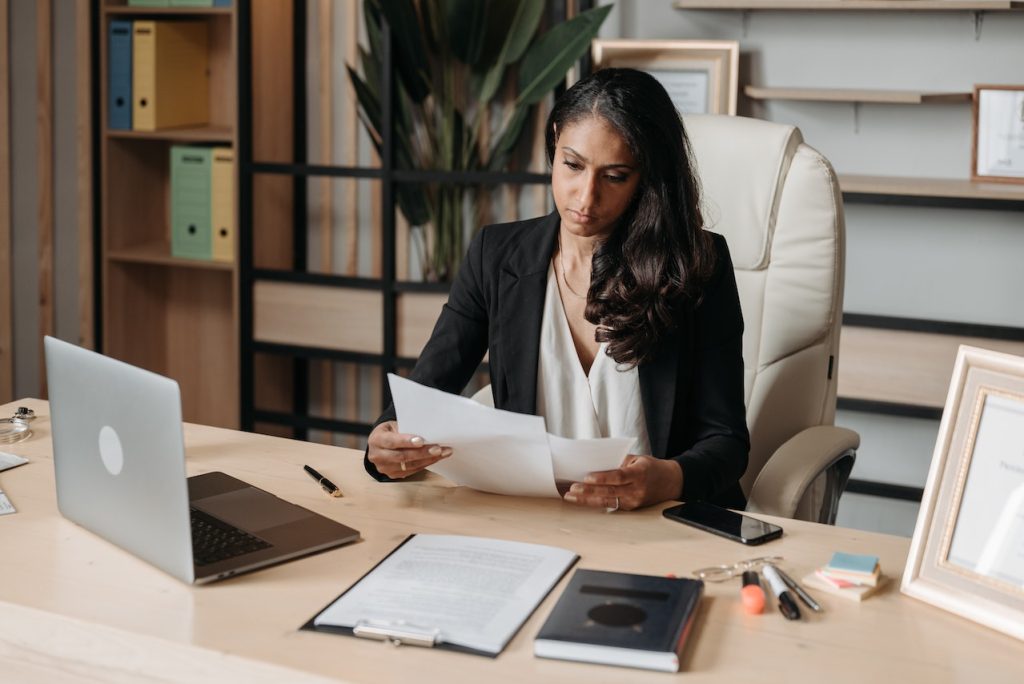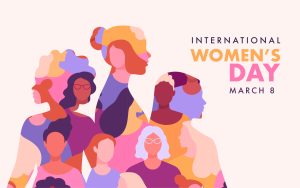The legal industry is in-demand and is projected to grow by 10% between 2021 to 2031. Since there are various fields of law, such as criminal, immigration, and commercial law, lawyers can choose what area they want to specialize in. For this reason, many people want to become lawyers.
However, the legal industry primarily consists of men. According to the 2022 American Bar Association (ABA) National Lawyer Population Survey, only 38.3 percent of lawyers are women. While this has increased by 5% in the last decade, there’s still room for improvement.
Nevertheless, several successful female lawyers are changing the landscape. They are role models, and their proven success inspires young learners to enter the legal profession.
What can an aspiring female attorney learn from these famous female lawyers? Let’s find out!
Key Takeaways
- The legal industry primarily consists of men.
- Female lawyers are slowly making their presence known by effecting change.
- The best life lessons come from people who have made an indelible mark in the industry, and these female lawyers are the perfect example.
Successful Female Attorneys and What You Can Learn From Them

It’s common for women to experience discrimination in the workplace. Some leave their jobs or accept less prestigious positions than their male colleagues because of their gender. It can be very challenging for a woman to enter the legal profession, which is why a role model can make a huge difference.
How did successful female attorneys in the U.S. achieve success while still adhering to a high professional standard? You’ll learn about their experiences, motivations, and strategies that have helped them stay grounded amid the hustle and bustle of work life.
Here are a few trailblazing female lawyers in the U.S. and how you can replicate their success as you navigate the legal profession.
Ruth Bader Ginsburg
Ruth Bader Ginsburg attended Cornell University and Columbia Law School. As a young lawyer, Ginsburg fiercely fought for gender equality.
She is also the most prominent and well-known female Justice of the U.S. Supreme Court. Before being appointed to the Supreme Court, Ginsburg was a judge in the U.S. Court of Appeals of the District of Columbia.
Ginsburg was appointed to the Supreme Court by former President Bill Clinton in 1993. During her tenure, Ginsburg decided landmark cases on gender equality and civil and workers’ rights. Despite, however, her illustrious career, Ginsburg was subject to discrimination.
Ginsburg is a perfect example of how intelligence, tenacity, and intricate legal arguments can affect people’s lives.
Hillary Rodham Clinton
Hillary Rodham Clinton was the 67th U.S. Secretary of State and the 2016 Democratic Presidential nominee. As Secretary of State, she was the highest-ranking female official in the country.
During her time in office, she served as the nation’s chief diplomat, implementing various United Nations and American foreign policies. Clinton became the first female presidential candidate in U.S. history and was also a senator from New York between 2001 to 2009.
Despite the ups and downs in her career, Clinton has vigorously fought to empower women in both law and politics. Clinton’s colorful legal and political journey imparts the following essential lessons:
- Know your goals
- Pick your battles
- Argue with respect
- Stay in tune with your strengths and weaknesses
Many have seen Clinton practice these lessons when she spoke and addressed her opponents during debates and speeches.
Michelle Obama
Michelle Obama, who is a lawyer from Harvard Law School, was the first African-American woman to serve as the First Lady of the U.S. between 2009 to 2017. During her tenure, she fought to boost the profile of minority women in American society.
Obama embarked on various initiatives to advance her agenda, including Let’s Move! The campaign aimed to get children back into physical activity by teaching them how to play sports.
Many have related to Obama. Her poise, grace, and ideals allowed her to make a name for herself away from the shadows of her husband.
Obama is an inspirational figure. Her tip for adapting to an uncertain world? “You have to evolve with it.” She has also said that young people should know what their weaknesses are and work until they become their strengths. But it doesn’t end there, and you should further develop these skills and learn to implement them in any situation.
Sandra Day O’Connor
Sandra Day O’Connor was an American jurist and the first female Justice in the U.S. Supreme Court, where she served from 1981 to 2006. O’Connor was widely considered the swing voice on the Supreme Court, along with Associate Justice David Souter.
As a judge, O’Connor was known for her conservative views on law and human rights. During her time on the Supreme Court, O’Connor authored several landmark decisions, including Obergefell v. Hodges, which struck down state laws that prohibited same-sex marriage. O’Connor was the first woman to be granted an honorary degree from Brown University and remained Brown’s most-cited alumnus.
O’Connor’s 25-year tenure on the Supreme Court is a testament to the fact that, with hard work and dedication, you can have tremendous influence even if you’re not the highest-ranking official.
Sonia Sotomayor
Sonia Sotomayor is the first Latin American woman to serve on the Supreme Court. Before her appointment, she was a District Court Judge for the Southern District of New York and was later appointed as a judge of the Court of Appeals for the Second Circuit.
Born in Barranquilla, Colombia, Sotomayor immigrated to the U.S. as an infant and became a naturalized American citizen in 1969.
As a judge, Sotomayor’s main focus has been on legal procedure, as well as the intersection of law and human rights. One of her most notable decisions was about the U.S. government’s use of drones and their implications on privacy.
What can you learn from her legal career?
Sotomayor has always said that you should focus on work that’s meaningful to you. Figure out what you’re good at, and then think of ways to make a difference in your community. One doesn’t have to hold a position to effect change.
Judith Sheindlin
Judith Sheindlin is an American television personality, former lawyer, and current judge on the New York Court of Appeals. Sheindlin was raised in the suburbs of New York City and attended a Catholic high school before going to Brooklyn Law School.
During law school, she was an editor of the school newspaper and the editor-in-chief of the school’s yearbook. Sheindlin’s television career began in 1979 when she was hired as a law clerk. Sheindlin was also the first woman to win the “best judge” award from the New York State Bar Association.
Before her success as a TV and legal personality, she was a former family court judge in New York City, working with lawyers, parenting coordinators, and the like. No one knew that Judge Judy, with a high net worth, used to live in a studio apartment in Manhattan.
She perfectly exemplifies that hard work pays off. Understanding your value and using it to get what you deserve is also essential.
Kamala Harris
Kamala Harris is the first African-American and first Asian-American vice president. Harris has had a long career in both law and politics, as she was the attorney general of California between 2011 to 2017 and a U.S. senator between 2017 to 2021.
Those who don’t know her may think that Harris rapidly rose through the ranks. However, that’s far from reality. As a female lawyer, she had to put in a lot of hard work, and her perseverance was critical for her to become the leader she is today.
One important lesson that anyone can learn from her is remembering and appreciating the people who made a difference in your life. She is also notable for becoming the beacon of change. In her Instagram post, she captioned her speech with, “I hope every little girl watching tonight sees that this is a country of possibilities.”
Gloria Allred
Gloria Allred, who is also the president of the Women’s Equal Rights Legal Defense and Education Fund, is notable for handling high-profile cases involving women’s rights. The University of West Los Angeles Law School gave Allred an honorary Juris Doctor degree.
Allred co-founded a law firm that handles most women’s rights cases. For example, she sued the Friars Club, an all-male private club in New York, for discriminating against women. She also represented Nicole Brown Simpson’s family during the highly-followed OJ Simpson trial. Another high-profile case she handled was against Aaron Spelling, where her position was that Spelling could not terminate actress Hunter Tylo for her pregnancy.
Allred’s view is that anyone has the power to make a difference regardless of their social and economic status. You have to be up for the fight.
Female Lawyers Making a Difference

Despite the number of women entering the legal profession, it remains dominated by men. There are many opportunities for women in the legal field, but they must put in the effort to succeed.
Here are some additional tips and advice from female lawyers and how they made a huge difference:
Meldi Moore, Founding Attorney, Moore Law for Children
Despite the gains women have made because of the dedicated work of the strong women who preceded them, they still face obstacles, especially in a profession traditionally dominated by men.
The fact of the matter is that women have a harder time succeeding in the legal profession because we have to fight against gender stereotypes. This makes it even more difficult to be perceived as competent and as a leader. So, as women, we need to be confident while speaking our minds, have active listening skills, be open-minded, admit mistakes, and be accountable and learn from them.
My advice to women leaders is to work hard, persevere, and speak up. Have integrity and compassion, and be a role model and a supporter of young women. Perhaps my best tip is that you shouldn’t be afraid of being strong and vulnerable, as both are necessary to be authentic and relatable. It has been my secret to success.
Tina Sharma, Founding Attorney at Law Offices of Tina Sharma
When considering what area of law you want to practice, the best advice I have is that you should make your choice based on what’s personally and professionally important to you. When you have a case that hits home for you, it's easier to empathize with your client and show a connection to their problem. It also makes your job feel more relevant and rewarding when you have a professional interest in the case. Most importantly, this will allow you to be more passionate when fighting for your client, which is crucial to winning.
Miranda McCroskey, Esq., Founder and Lead Attorney, Unlock Legal
- Determine if you are a technician or an entrepreneur and act accordingly.
- Run your law firm like a business taking into account the five building blocks of business: Marketing, Management, Finance, Controls, and Operations.
- Hire a business advisor to be a sounding board who can tell you things others won't.
- Learn how to hire and manage people. Doing everything yourself will only get you so far. "Keep it small and keep it all" won't make you rich.
- Understand your finances. Hire a CPA to help you "read" your financials every month.
- Give up being the hero. While you may think that you’re the only person who can do it the right way, let others support you, and you’ll get to the top.
Kelly R.M. Irwin, Founding Attorney at Irwin & Irwin LLP
I think most women never really feel like they “made it to the top.” We look around and think of how we could have done it better, faster, or easier. This is usually because we’re quite hard on ourselves. So, the first thing I would say is that you should allow yourself to have some grace.
Women becoming lawyers is already difficult enough. We do not have to pile on additional self-criticism. I would also suggest women in this profession focus on being firm and straightforward but remain professional. Women are perceived differently from men. Therefore, we must hold our ground.
Over the 17 years that I’ve been practicing, I’ve seen that this profession has slowly become more unprofessional. Maintaining your composure is critical to getting results and allowing clients to see that they can count on you.
Last, I would add that any lawyer, female or not, needs to find a work-life balance, or they will be burned out before their time. You cannot run a marathon if you do not pace yourself.
Taking all these tips means one thing, maximizing opportunities is critical for success. As simple knowledge as knowing where to incorporate your business can make a huge difference. For example, compare Delaware vs. Florida LLC. Research where you can explore more opportunities as a woman.
No one can deny that women, no matter their profession, have what it takes to make a change. Often, they only need a role model to create a spark. Are you ready to make a difference?





















